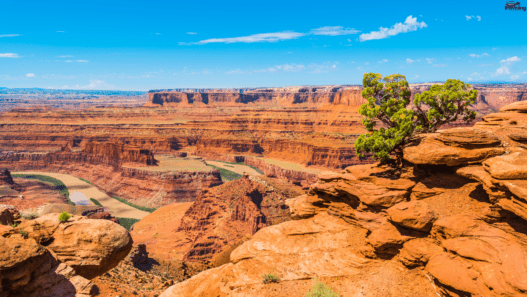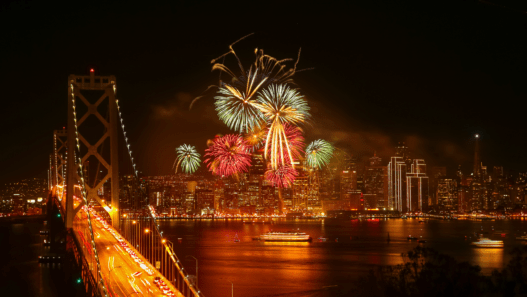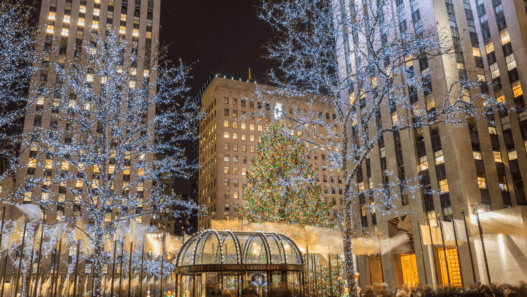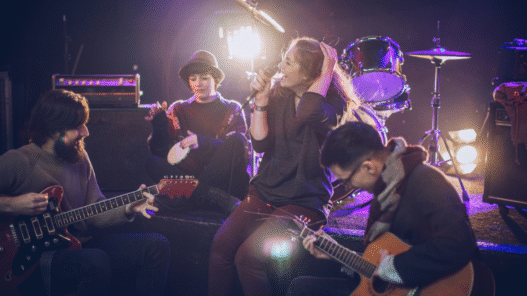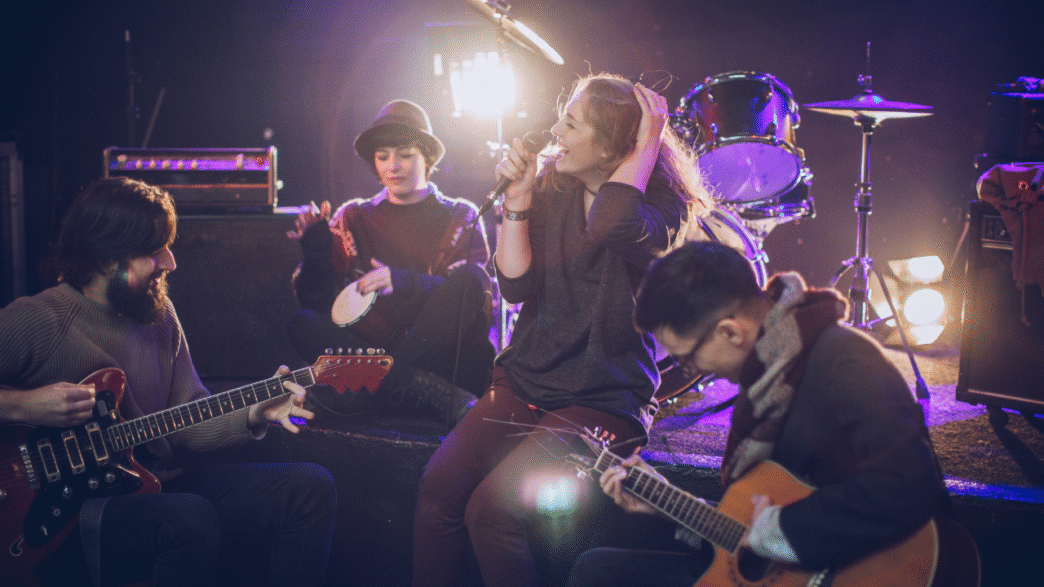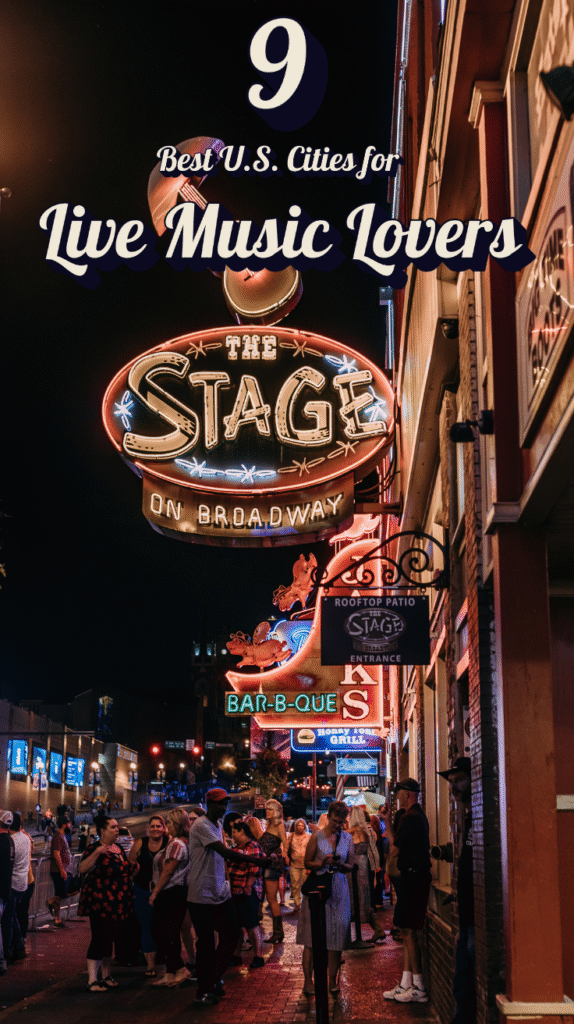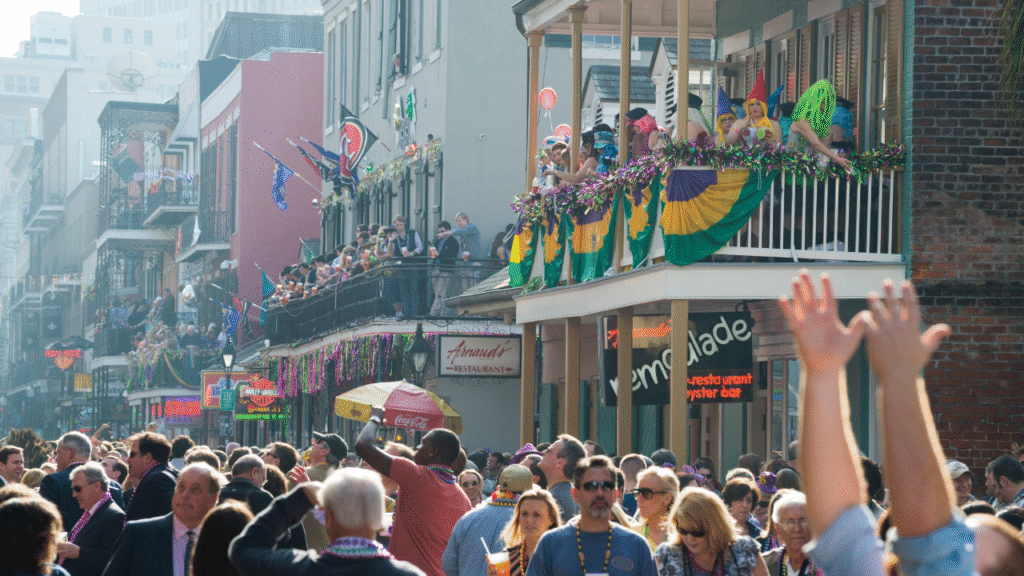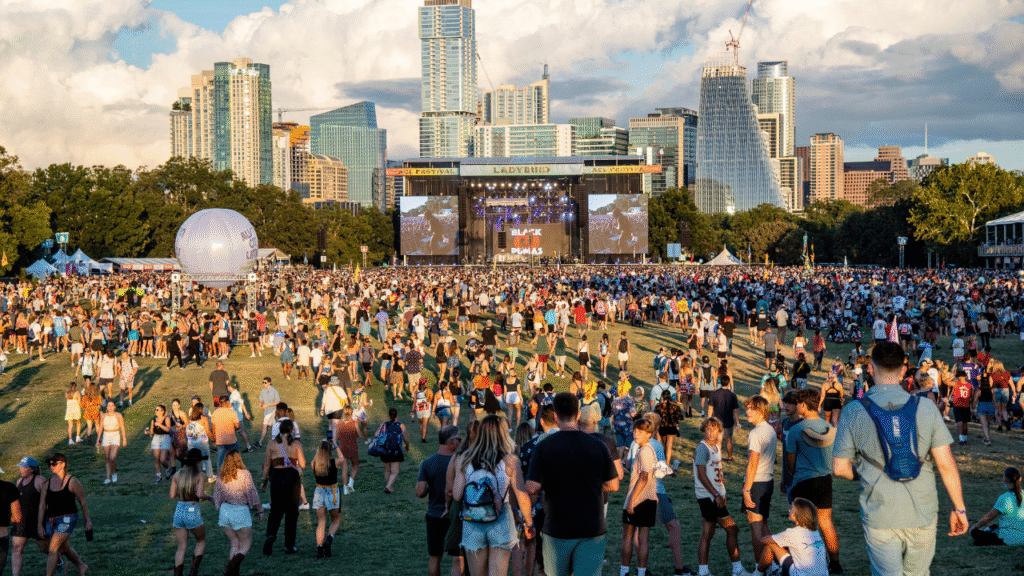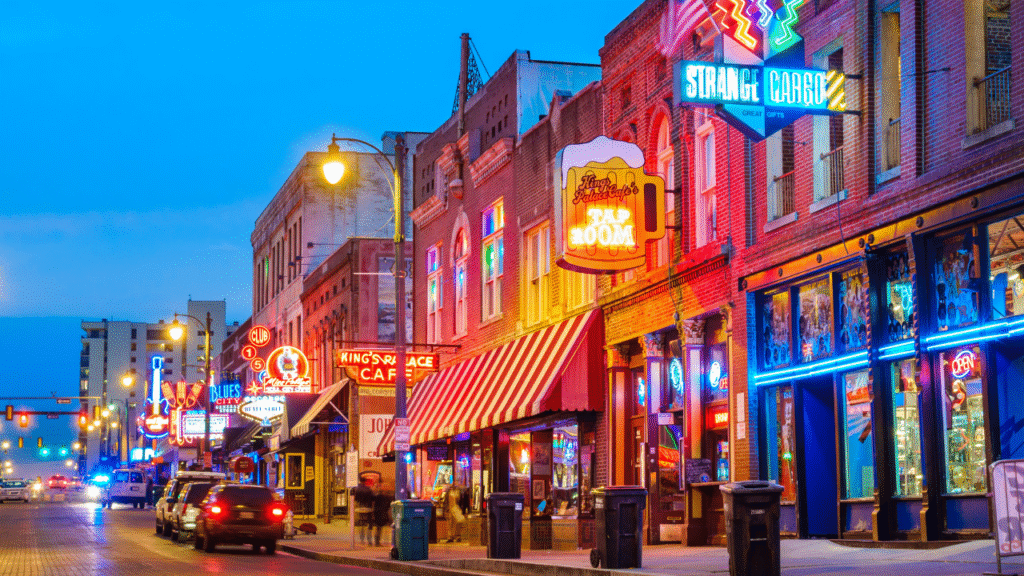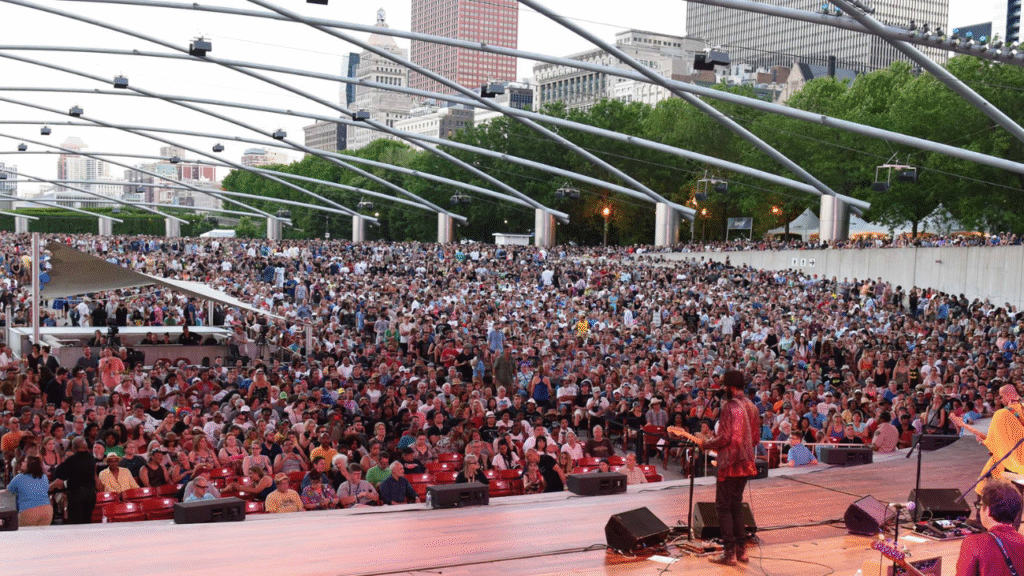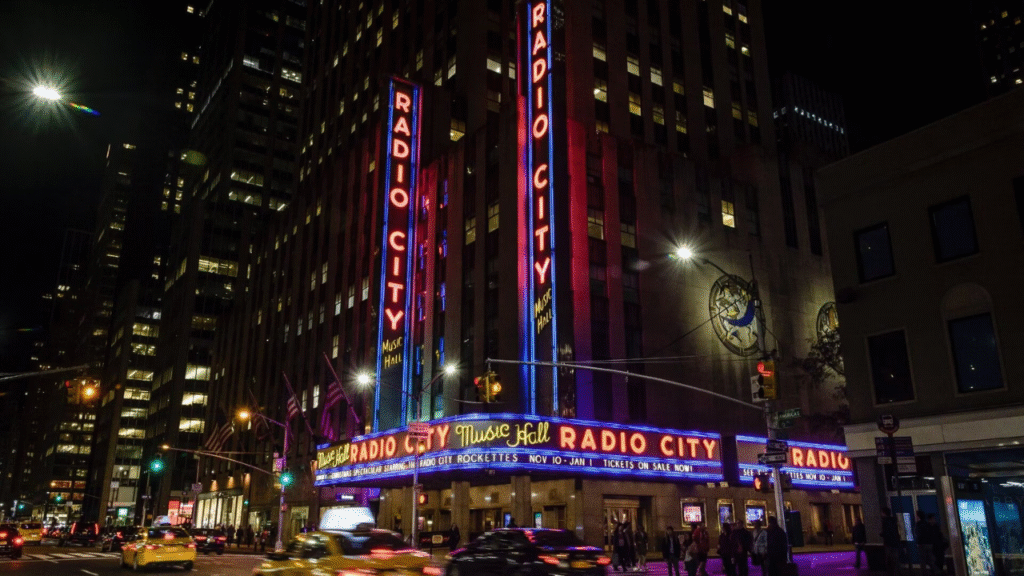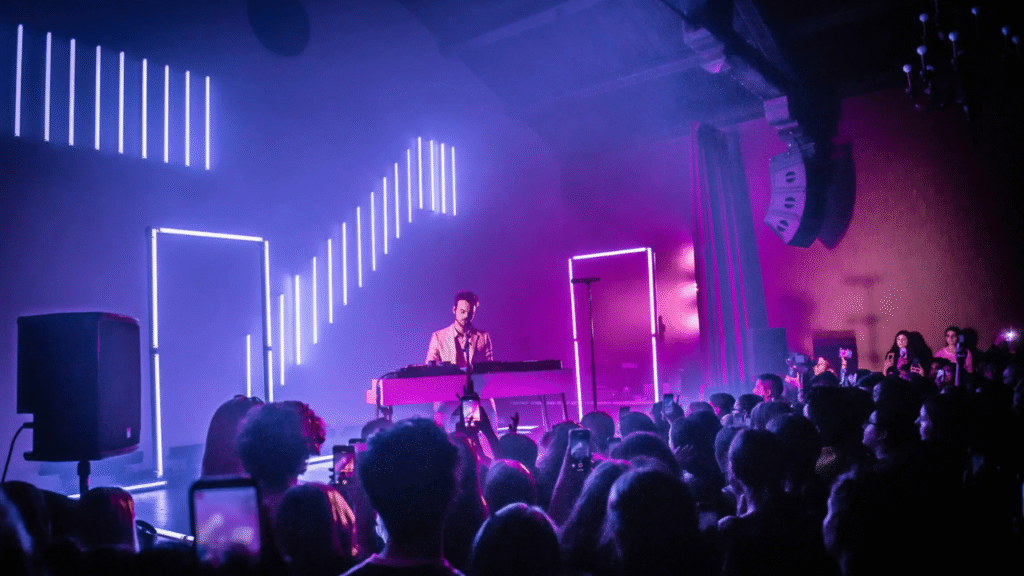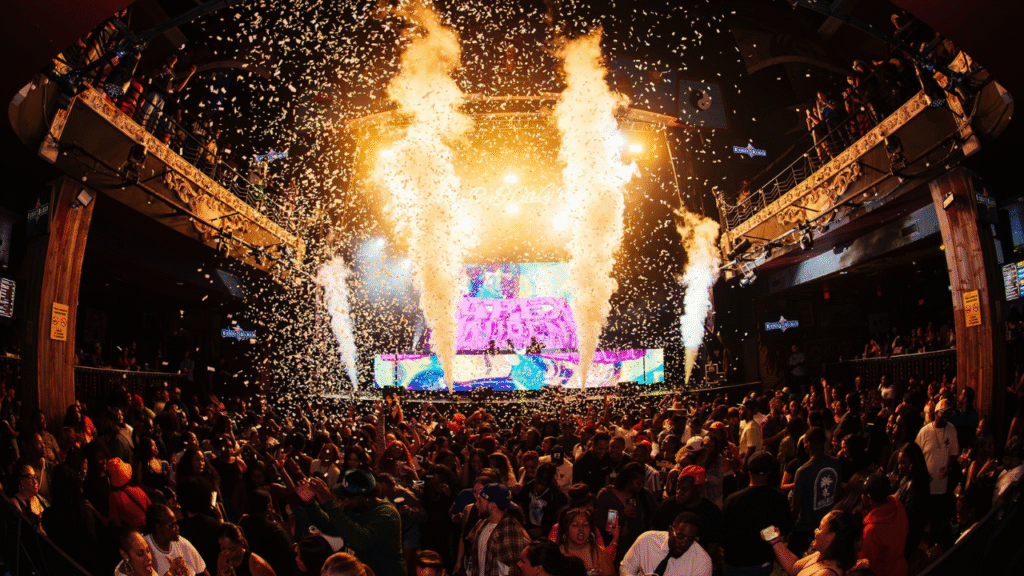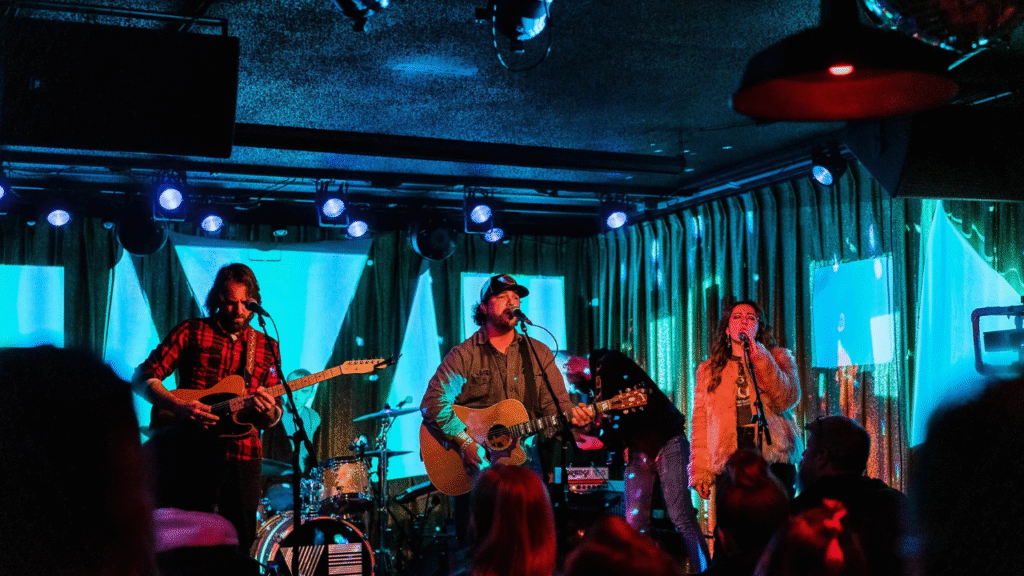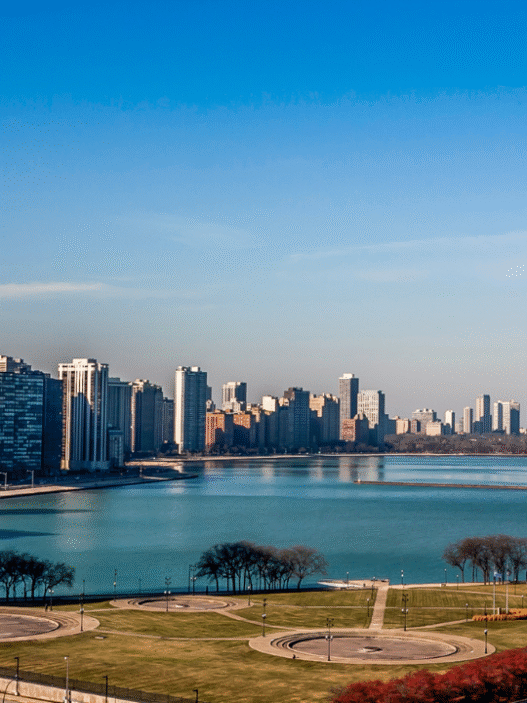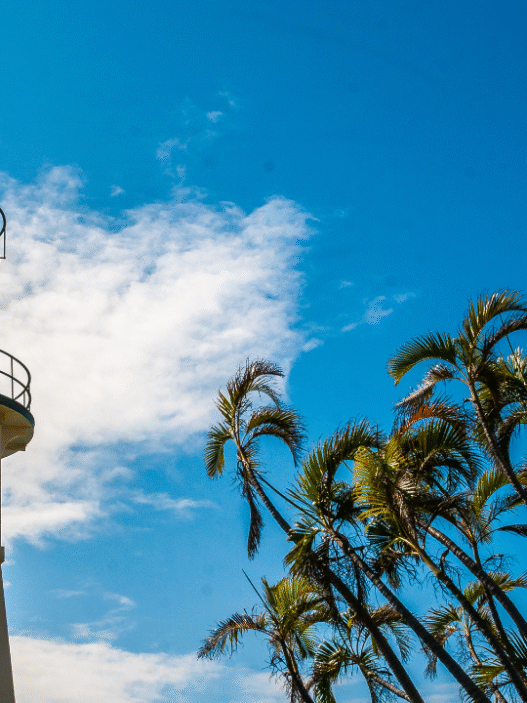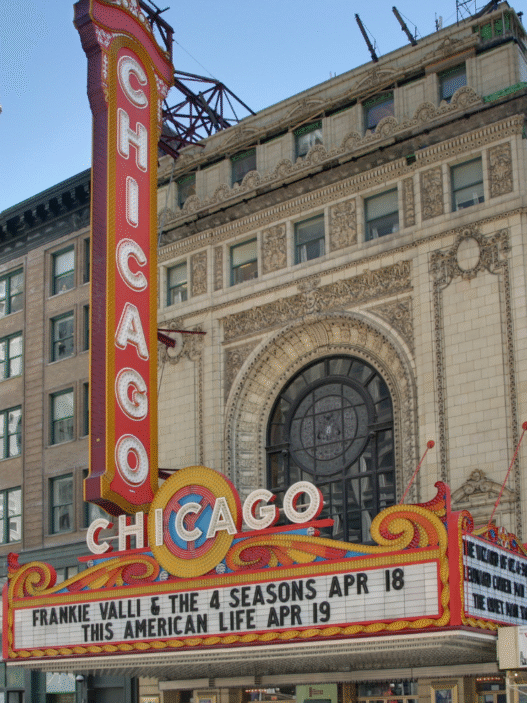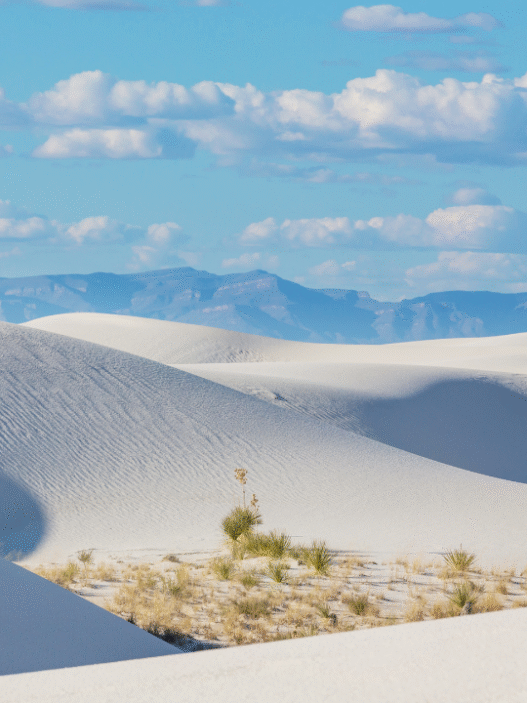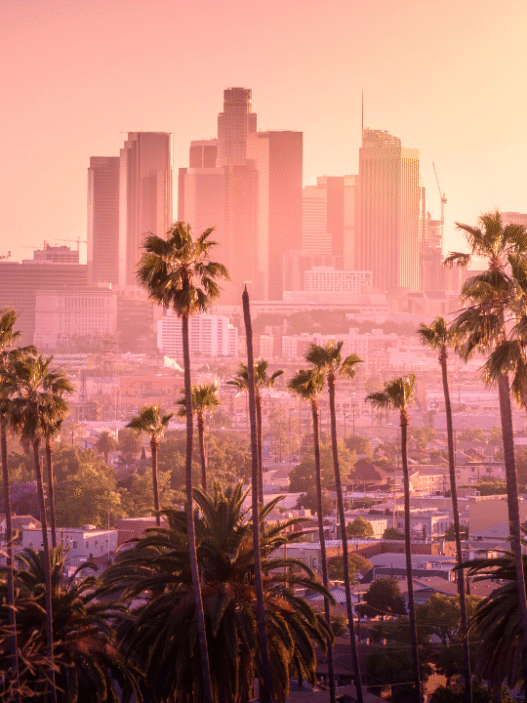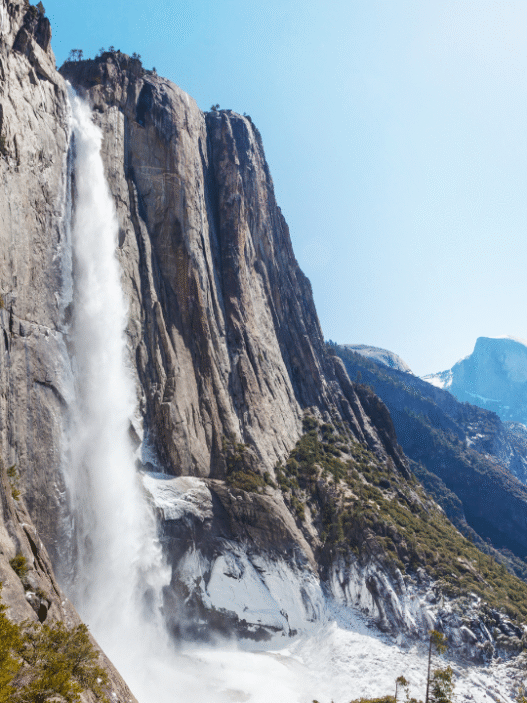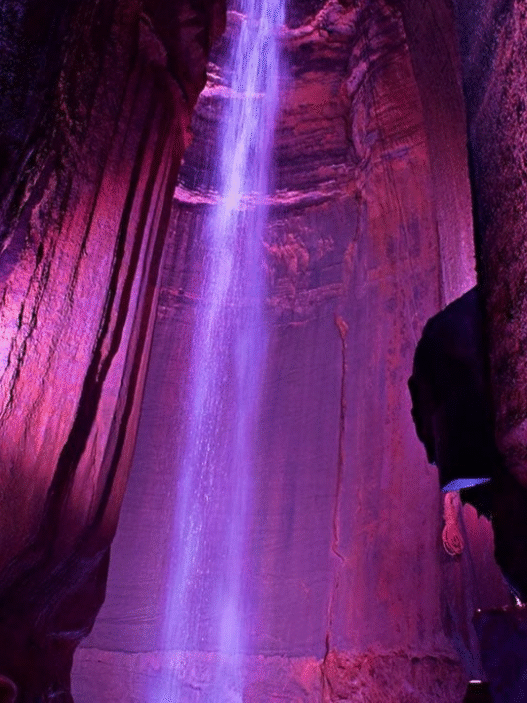America’s music story isn’t just told in records and playlists—it’s written in the streets, bars, and concert halls of cities where sound is part of the soul. This guide to the 9 Best U.S. Cities for Live Music Lovers takes you from smoky blues clubs in Chicago to neon-lit honky-tonks in Nashville, tracing the origins of entire genres along the way.
Each city offers more than a good show—it offers history, cultural identity, and the chance to walk in the footsteps of legends. Whether your taste leans toward jazz improvisations, thundering rock anthems, or soulful R&B ballads, these destinations prove that music is as much about place as it is about sound.
1. Nashville, Tennessee
Known as “Music City,” Nashville is the beating heart of country music, but its reach goes far beyond twangy guitars. Home to the legendary Grand Ole Opry since 1925 and the Country Music Hall of Fame, the city launched stars like Johnny Cash, Dolly Parton, and Taylor Swift. Broadway’s honky-tonk bars buzz with live performances from sunrise to midnight, while venues like the Ryman Auditorium are steeped in music history. Nashville’s songwriting scene is world-class, with hidden gems like The Bluebird Café where hits are born in intimate settings. For any music lover, it’s a pilgrimage site.
2. New Orleans, Louisiana
New Orleans isn’t just the birthplace of jazz—it’s a living, breathing symphony of cultural influences. From Louis Armstrong’s groundbreaking trumpet solos to the street parades of Mardi Gras, music here is woven into daily life. The French Quarter’s Preservation Hall keeps traditional jazz alive, while Frenchmen Street pulses with funk, blues, and brass bands late into the night. Genres like zydeco and bounce thrive here too, reflecting the city’s diverse heritage. Every corner in New Orleans seems to hum with rhythm, making it one of the most immersive live music cities in the world.
3. Austin, Texas
Proudly calling itself the “Live Music Capital of the World,” Austin delivers on that promise with more than 250 live music venues. Its eclectic soundscape ranges from indie rock at Mohawk Austin to blues at Antone’s, the club that helped launch Stevie Ray Vaughan. The annual South by Southwest (SXSW) Festival transforms the entire city into a stage, drawing artists and fans from every continent. Austin’s laid-back, creative energy has made it a hub for up-and-coming musicians in every genre imaginable. Whether it’s a backyard show or a massive festival, music here always feels personal.
4. Memphis, Tennessee
Memphis is where blues found its voice and rock ‘n’ roll found its swagger. Beale Street has been a blues mecca since the early 1900s, inspiring legends like B.B. King and Howlin’ Wolf. Sun Studio—often called the “Birthplace of Rock ‘n’ Roll”—is where Elvis Presley, Jerry Lee Lewis, and Johnny Cash first recorded their groundbreaking hits. The city’s Stax Museum of American Soul Music celebrates its deep soul music roots, highlighting the era when Otis Redding and Isaac Hayes redefined sound. Memphis is a raw, soulful, and deeply authentic music city.
5. Chicago, Illinois
The Windy City amplified the blues, electrifying the genre in the 1940s and paving the way for rock ‘n’ roll. Muddy Waters, Howlin’ Wolf, and Buddy Guy made Chicago blues a worldwide phenomenon. The city’s jazz heritage also thrives in spots like the Green Mill Cocktail Lounge, a speakeasy once frequented by Al Capone. From large festivals like the Chicago Blues Festival to intimate clubs scattered across the South and West Sides, Chicago’s music history continues to inspire both established stars and rising talents.
6. New York City, New York
Few places can match New York City’s influence across genres—jazz in Harlem, punk in the East Village, hip-hop in the Bronx, and indie rock in Brooklyn. The Apollo Theater gave the world Ella Fitzgerald and James Brown, while CBGB became ground zero for punk icons like the Ramones and Patti Smith. Today, venues like the Bowery Ballroom, Blue Note, and Madison Square Garden ensure that every night in NYC offers world-class live music. Its diversity makes it a music destination for every taste.
7. Los Angeles, California
L.A.’s music scene is as varied as its neighborhoods. Hollywood’s Sunset Strip birthed rock legends like The Doors, Guns N’ Roses, and Mötley Crüe, while Laurel Canyon shaped the sound of 1970s folk rock with artists like Joni Mitchell and The Eagles. Jazz clubs in Leimert Park, Latin music in East L.A., and global pop acts at the Hollywood Bowl keep the city’s music culture thriving. As the heart of the recording industry, Los Angeles remains a magnet for musicians chasing big dreams.
8. Detroit, Michigan
Detroit’s name is forever linked with Motown, the record label that changed popular music in the 1960s. Berry Gordy’s Motown Records gave rise to The Supremes, Stevie Wonder, Marvin Gaye, and The Temptations. Beyond soul, Detroit also fostered influential rock acts like The White Stripes and techno pioneers Derrick May and Juan Atkins. Venues like the Fox Theatre and Cliff Bell’s carry the city’s music legacy into the present, proving Detroit’s sound is as powerful as ever.
9. Seattle, Washington
Seattle will always be remembered for the grunge explosion of the early 1990s, when Nirvana, Pearl Jam, and Soundgarden reshaped rock music. But its music heritage also includes Jimi Hendrix‘s legendary guitar work and a vibrant jazz scene dating back to the 1940s. Today, the city’s venues—from The Crocodile to the Paramount Theatre—offer everything from indie folk to experimental electronica. Surrounded by creativity, Seattle continues to evolve as a city where new sounds are born.


